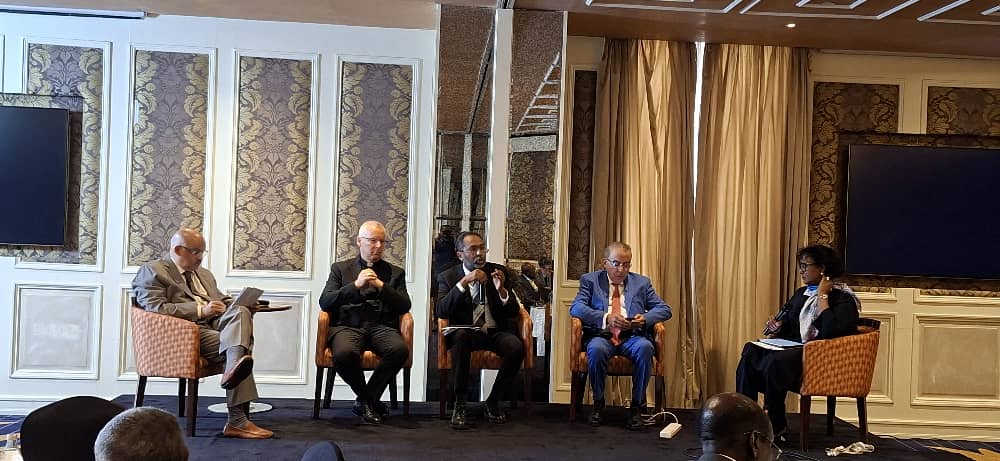Global organisations have been called upon to pressure Sudanese forces to stop fighting and return to talks as the country faces an escalating humanitarian disaster.
At a high-level meeting of the Nairobi Panel on the Humanitarian Crisis in Sudan on Thursday, experts warned that military action will only prolong suffering, displace more people, and destabilise the region.
The panel stressed that only an inclusive political dialogue can provide lasting peace, urging the African Union, IGAD, and the United Nations to act decisively.
“The people of Sudan have endured enough. The continuation of a military solution only deepens the cycle of violence, destruction and despair. No battlefield victory will ever bring peace, justice, or stability to Sudan; only an inclusive political settlement can do so,” the panel stated.
Members called for immediate pressure on the Sudanese Armed Forces and the Rapid Support Forces to end hostilities and return to negotiations. They warned that relying on military solutions will worsen the crisis, emphasising that political engagement remains the only path to peace.
The panel also highlighted the need for expanded humanitarian access to protect civilians and deliver aid effectively.
It urged the inclusion of women, youth, civil society, faith-based organisations, and marginalised communities in the political process.
Establishing a transitional government with full civilian authority to oversee free and fair elections was identified as a crucial step toward recovery.
“Sudan stands at a critical crossroads. The future of its people cannot be determined by violence… Silence, procrastination and inaction are complicity. Sudan needs peace now. We must break the silence and silence the guns,” the panel warned.
Prominent participants at the meeting included Amb. Amina Mohamed, Founder of Alive; Arnauld Akodjenou, Special Adviser for Africa at the Kofi Annan Foundation; and Barnaba Marial Benjamin, former South Sudanese Foreign Minister.
Despite the ongoing conflict, over one million internally displaced people have returned to some areas of Sudan, along with 320,000 who came back mainly from Egypt and South Sudan since last year.
Many are returning to Khartoum, Sennar, and Al Jazirah States, even as the regions remain heavily affected by the war.
“More than evidence of people’s desire to return to their homeland, these returns are a desperate call for an end to the war so that people can come back and rebuild their lives,” said Regional Refugee Coordinator Mamadou Dian Balde.
He added, “We urge stronger international solidarity with the Sudanese people uprooted by this horrifying war and with the countries that have opened their doors to them.”
IOM Regional Director Othman Belbeisi underlined the role of returnees in Sudan’s recovery.
“Those heading home are not passive survivors, they are vital to Sudan’s recovery… We must work alongside local partners to ensure that people return not to shattered systems, but to the foundations of peace, dignity, and opportunity,” he said.
UNDP’s Abdallah Al Dardari, Director of the Regional Bureau for Arab States, warned that urgent action is required to prevent further suffering.
“But without urgent action, people will be coming back to cities that are in ruins. We are in a race against time to clear the rubble and provide water, power, and health care… We also need to offer longer-term support for jobs and businesses and address the unseen damage of war, including counselling and legal aid for women victims of violence,” Dardari said.
Fighting continues in Darfur and Kordofan, displacing hundreds daily. Sudan currently hosts 10 million internally displaced people and around 882,000 refugees and asylum-seekers, with over 12 million people displaced since the conflict began.
Humanitarian aid remains critically underfunded. By July 21, 2025, only 23 per cent of the $4.2 billion needed for aid inside Sudan and 16 per cent of the $1.8 billion required for neighbouring host countries had been received.
Relief agencies are working to provide water, health care, and shelter, as well as legal and mental health support for survivors of sexual and gender-based violence, while also planning for debris removal and infrastructure repair.

